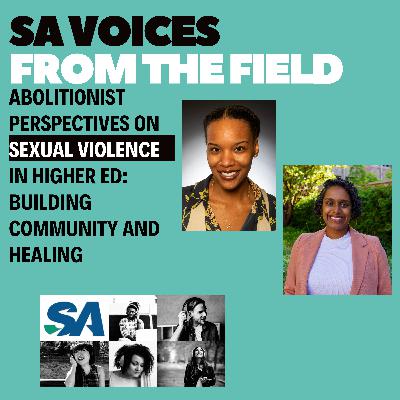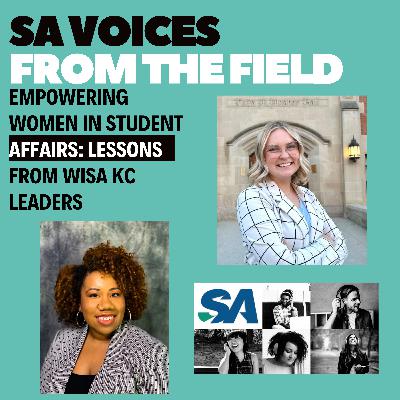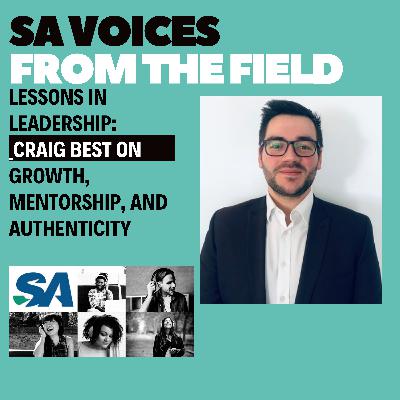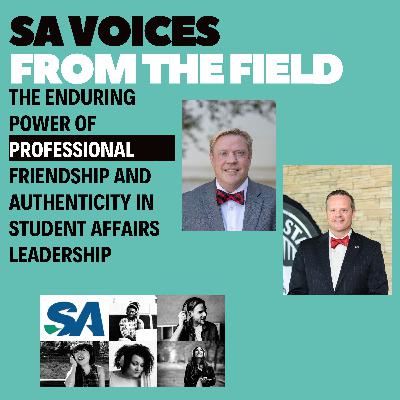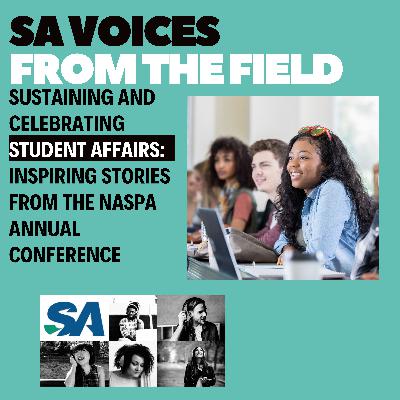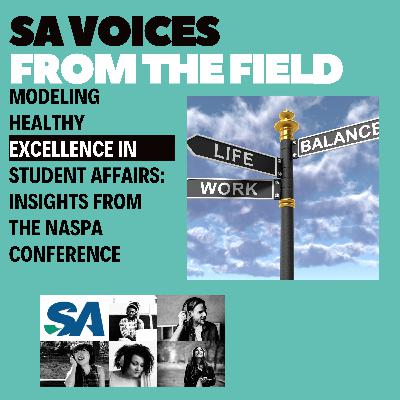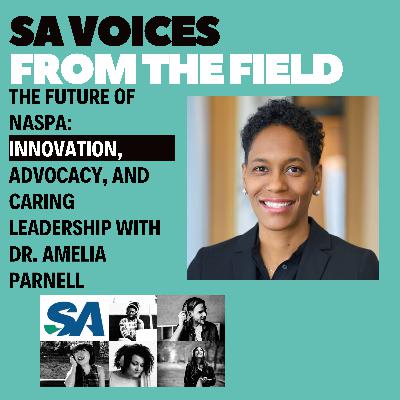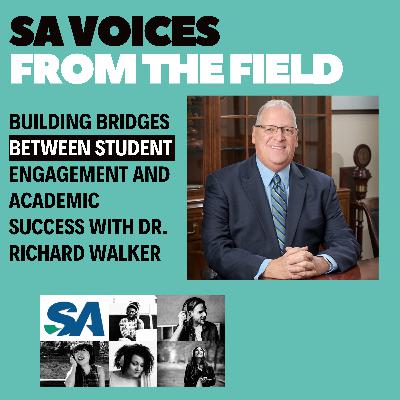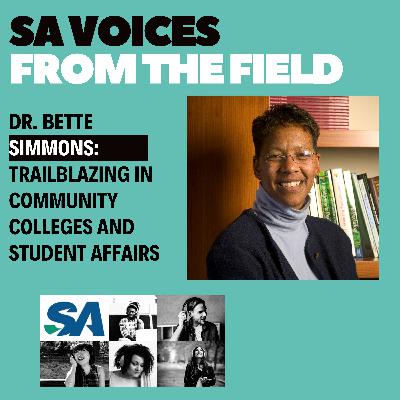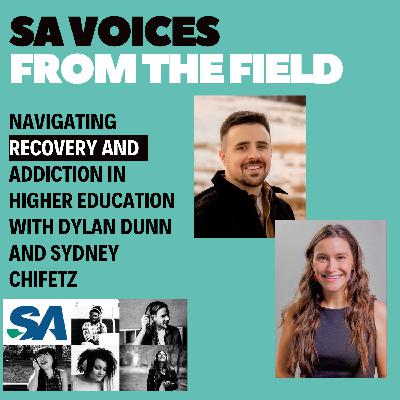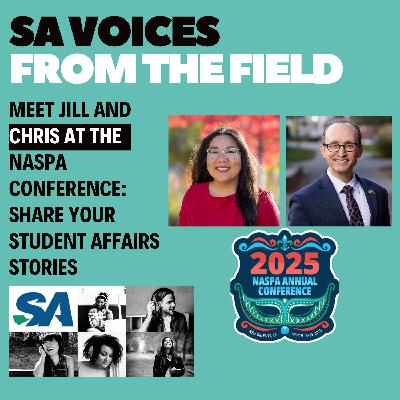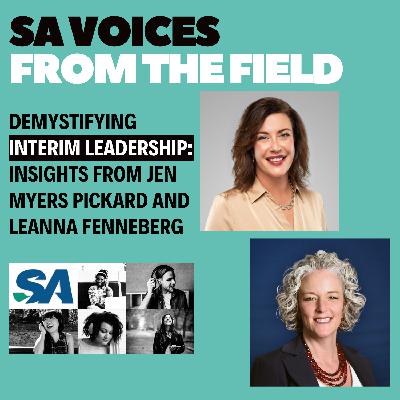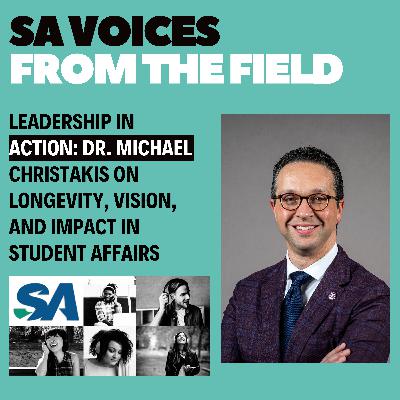Abolitionist Perspectives on Sexual Violence in Higher Ed: Building Community and Healing
Description
In the latest episode of Student Affairs Voices from the Field, host Dr. Jill Creighton sits down with Dr. Niah Grimes and Dr. Nadeeka Karunaratne, two of the three authors behind the ground-breaking new book, Thinking Like an Abolitionist to End Sexual Violence in Higher Education. This episode dives deep into not just the book, but the lived experiences, philosophies, and activism shaping how we address sexual violence on college campuses today.
The conversation is rich, personal, and thought-provoking from the outset. Both Dr. Grimes and Dr. Karunaratne share their journeys into higher education and research, rooted deeply in addressing systems of violence, healing, and examining the needs of minoritized students. Their experiences as scholar-practitioners and their commitment to transformative justice is palpable throughout the discussion.
At the heart of the conversation is the bold theme of “abolitionist thinking.” Rather than viewing abolition solely as dismantling harmful systems, the authors draw on the work of Ruth Wilson Gilmore and others to frame abolition as the presence of care, community, and healing. They challenge the carceral and compliance-driven frameworks that have dominated Title IX and other campus responses while calling for practices that actually meet the needs of survivors and communities—not just adhere to federal mandates.
Dr. Grimes highlights how compliance cultures, rooted in white supremacy, often stifle creativity and community, leading to approaches where “business as usual” takes precedence over true prevention and healing. Dr. Karunaratne adds the importance of local, grassroots efforts and "1,000,000 experiments"—encouraging institutions and individuals to try new approaches, fail, learn, and grow together. Throughout, both assert the transformative power of centering healing—for survivors and for communities as a whole.
Perhaps most refreshing is the authors’ call for those in higher education to move beyond compliance as the ceiling of their work, to instead use it as the bare minimum "floor" from which innovation, accountability, and holistic care can grow. They urge practitioners to honor their own strengths, invest in their healing and that of students, and build community from the ground up.
If you are a student affairs professional, educator, or simply care about safer and more just campuses, this episode will challenge and inspire you. Listen now to hear new perspectives on building communities where all students can thrive beyond the constraints of the current system.
Listen to the episode and rethink how we approach prevention, healing, and justice in higher education. Your campus could be the next place where abolitionist thinking takes root.
TRANSCRIPT
Dr. Jill Creighton [00:00:01 ]:
Welcome to Student Affairs Voices from the Field, the podcast where we share your student affairs stories from fresh perspectives to seasoned experts. Brought to you by NASPA, we curate free and accessible professional development for higher ed professionals wherever you happen to be. This is season 12, continuing our journey through the past, present, and future of student affairs. I'm Dr. Jill Creighton, she, her, hers, your essay voices from the field host. Welcome back to another episode of essay Voices from the Field, where today we're featuring two of three authors of a brand new book, Thinking Like an Abolitionist to End Sexual Violence in Higher Education. Our first guest is Dr. Niah S. Grimes, who received her doctorate from the University of Georgia in Education with an emphasis in College Student Affairs Administration with a certificate in Diversity, Equity, and Inclusion.
Dr. Jill Creighton [00:00:48 ]:
Dr. Grimes was the recipient of the Mary Frances Early College of Education's Research Award and spent her tenure at the University of Georgia investigating campus sexual violence and systems of domination to begin eradicating violence and oppression from higher education. As an assistant professor in the Higher Education and Student Affairs program in the Department of Advanced Studies Leadership and Policy, Dr. Grimes focuses her scholarship and teaching on spirituality and healing, examining the experiences of people on campus with multiple minoritized identities, and eradicating violence and systems of oppression in higher education and beyond. Our second guest is Dr. Nadeeka Karunaratne, and she's a postdoctoral research associate in the McCluskey Center for Violence Prevention at the University of Utah. In her research, she employs power conscious frameworks to understand issues of sexual violence in higher education, focusing on interrupting harm and promoting healing for minoritized survivors. Nadeeka's background in student affairs, specifically her work in campus cultural centers and with university violence prevention efforts, influences her scholarship and teaching.
Dr. Jill Creighton [00:01:48 ]:
She's also a trauma informed yoga instructor programs on college campuses and in the community. Welcome to SA Voices, Niah.
Dr. Niah Grimes [00:01:56 ]:
Hi. My name is Niah Grimes. Welcome. I'm happy to be here.
Dr. Jill Creighton [00:01:59 ]:
And Nadeeka, welcome.
Dr. Nadeeka Karunaratne [00:02:01 ]:
Hi. Thanks for having me.
Dr. Jill Creighton [00:02:03 ]:
We've got a coast to coast situation today with Naya coming to us from Maryland and Nadeeka coming to us from California. So I'm very glad we were able to make the time zones work out to have this very rich dialogue ahead. We're talking about your book today, which we'll get into in a moment. But before we do that, we always love to start our show by getting to know our guests and how you got to your current seat. So Naya, let's start with you. How did you become an assistant professor?
Dr. Niah Grimes [00:02:26 ]:
Wow. How to sum up such a long journey? I never really saw myself in this role at all. I I actually even in getting the college, I was first gen. I wasn't even considering that, like, the professors teaching me that that was a job available to me. And then at the time, I was at George Mason. They were in r two on the road to r one. So they had a ton of funding that they were pouring into undergraduate research. So I never thought about research, but my professors saw something in me just in my criticality, I think.
Dr. Niah Grimes [00:02:59 ]:
And I'm really just a problem solver, like, I like to solve problems. And so I was studying sociology, equity, and social change, and my professors were pushing me into research. So I was able to start taking qualitative research classes at the undergraduate level. I had an honors thesis where I did a qualitative dissertation level of work, but I interviewed 12 people, men specifically around their experiences retrospectively in high school, how they were taught to learn about sex. There was so much in the literature then almost blaming women for unintended pregnancy. And I'm like, where is the other perspective? And, you know, this is such a larger issue. So that's where I started my work in research, but I didn't believe in the power of research. I felt like we were doing all of this good work, but it wasn't reaching the people I cared about, my community members.
Dr. Niah Grimes [00:03:51 ]:
And so I started to do work more in the community, and I got into mental health counseling. I was doing work with survivors of violence, domestic violence, partner violence, neglected, unhoused youth, and I was working on the suicide switchboard nationally. And I recognized early on that, like, for some reason, I had a capacity to handle some of the harder things. And I leaned into that. One of my supervisors was a counselor, and I admired the relationship she built with the people we were serving. And I was like, I wanna do that. I feel like that's where my time should be spent. So I spent all this time getting a counseling degree, and I ended up counseling mostly in student affairs because I really loved undergraduate students, students in that before 25, the brain fully closed, like, area.
Dr. Niah Grimes [00:04:42 ]:
They just were so open to change and transformation. And as a transdisciplinary scholar, that is what sort of, like, ignites me is where can we make the most transformation towards healing so that people can meet their needs, so that people can live wholly. And from that work, I realized in working mostly with marginalized students, it wasn't them. It was systemic. And so I was like, okay. So now I need to generate power to really try to change structures and culture and community. And the best way that me personally with the identities that I hold to do that, not having any generational wealth, was to go back and get a PhD. So that's how I ended up at UGA with Chris Linder, and it's all really synchronous.
Dr. Niah Grimes [00:05:29 ]:
Right? Because without all of these things along the way, I would have never met doctor Linder. Through Chris is how I met Nadeeka through the Spencer. We did a symposium through Spencer together around sexual violence. And doctor Linder was really like, you have the capacity to really do assistant professor tenure track work. And, again, I I was like, well, I think I really need to practice. At the same time, my disability was getting worse and worse. S

